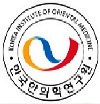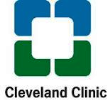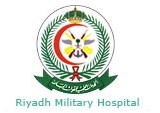Day 1 :
Keynote Forum
Jeffrey P. Harrison
University of North Florida, USA
Keynote: Personalized Healthcare: From Research to Practice
Time : 09:30 - 10:00

Biography:
Jeffrey P Harrison PhD, MBA, MHA is Chair of the Department of Public Health at the University of North Florida. He received his PhD in Health Services Research from VCU, his MBA from William and Mary and his MHA from the Medical College of Virginia. He is a Professor in Health Administration and teaches Strategic Planning. rnHe has twenty-five years’ experience in health care and is an international speaker on a wide range of topics. He has published extensively in the areas of Strategic Planning, Change Management, and Healthcare Technology. He has authored thirty nine professional articles and three book chapters. In 2015, he completed the second edition of his book: “Essentials of Strategic Planning in Healthcare” published by Health Administration Press. He is a Certified Healthcare Executive and a Fellow in the American College of Healthcare Executives. He was selected one of the “Top 100 Health Administration Professors”, in 2013. rn
Abstract:
Over the past decade, healthcare researchers have spent hundreds of millions of dollars in sequencing the first human genome. In addition, there is significant research in the use of stem cells to regenerate specialized tissue for treatment of individual patients. This session will address the use of this research to bring “Personalize Healthcare” to the patient. I will discuss the use of Human Genomics and other stem cell therapies across the continuum of Healthcare services. Specifically, I will explore the appropriate use of these new clinical technologies as an opportunity to enhance Palliative Care programs. The growth of “Personalized Healthcare” requires the creation of collaborative relationships between researchers, clinicians and healthcare leadership as process-focused care continues to develop. The growth of “Personalized Care” facilitates innovation across the continuum of healthcare practice and may be a cost effective approach to improving healthcare quality.
Keynote Forum
Justin Baker
St. Jude Children’s Research Hospital, USA
Keynote: Integrating pediatric palliative care into pediatric oncology
Time : 10:00 - 10:30
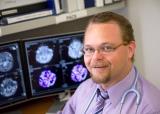
Biography:
As a pediatric oncologist, palliative care physician, member of the ethics committee and Phase I and end-of-life care clinical investigator at St. Jude Children’s Research Hospital, I am intimately aware of the distress experienced by children with advanced cancer and the ethical and end-of-life/bereavement issues surrounding their disease progression. I currently serve as the Chief of the Division of Quality of Life and Palliative Care at St. Jude as well as the medical director of our Quality of Life Service – the St. Jude palliative care team. I also serve as the Director of our Pediatric Hematology/Oncology fellowship program – the largest fellowship program in the state of TN. My research interests include ethical considerations surrounding enrollment in Phase I clinical trials, AYA palliative oncology care, end-of-life decision making, integrating palliative care into the ongoing care of children with cancer as well as pain and symptom control in the context of pediatric oncology care. I have participated in >25 studies related to pediatric palliative care and have authored numerous manuscripts and book chapters on the topics ethical decision making as well as other palliative care subjects within the context of pediatric oncology.
Abstract:
The trajectory of a pediatric palliative care program that has been integrated into a comprehensive cancer center is currently unknown. The purpose of this presentation is to document and assess the growth of the palliative care program over a five year time period and to examine key indicators reflecting improved quality of life for patients who have received care through the QoL Service at St. Jude Children’s Research Hospital. A retrospective cohort study identified 457 patients seen at least once by the institutional palliative care service (Quality of Life Service) between January 2008 and December 2012. The number of new patient referrals to the QoL Service has steadily increased from 52 in 2008 to 127 in 2012. The average number of visits per patient by the QoL Service also increased from 5.9 in 2008 to 10.9 in 2012. The amount of time from initial consult to death has increased from 44 days in 2008 to 149 days in 2012.From 2008 to 2010, 33% of the Quality of Life Service new referrals had a primary goal of comfort and only 12% had a goal of cure. In 2011 and 2012, the percentage of new patients with a primary goal of comfort dropped to 16% and patients with an initial goal of cure increased to 28%. Additionally, there has been an increase in the number of patients dying with hospice (40% in 2008 vs. 68% in 2012) and the patients are receiving hospice earlier than in the past (mean = 25 days in 2008 vs. mean = 107 days in 2012).The percentage of patients dying with a DNR in the chart has been maintained above 80% throughout the study period, but there has been an increase in the number of days the DNR was signed before death (mean = 24 days in 2008 vs. mean = 52 days in 2012). There has also been an increase in the percentage of St. Jude patients that received “expert level” palliative care before death. This “expert level” is considered to have been achieved if the patient is enrolled on hospice and/or was evaluated and followed by the QoL Service. In the first quarter of 2008, less than 30% of all St Jude patients that died received “expert level” palliative care. That number has now increased to 100% for the 4th quarter of 2012. The increased utilization of the QoL Service was brought about by many programmatic initiatives, including: creation of a model for palliative care delivery within the context of a strong medical home such as pediatric oncology, increased institutional resources, many educational sessions for all levels of trainees and healthcare providers, a trigger-based End-of-Life Care Project, creation of a family advisory council and elucidation of their institutional priorities for palliative care, implementation of a home health and hospice bridging program (QoLA Kids), creation of a bereavement program, the start of a multidisciplinary “liaison”team meeting, and the creation of a HPM fellowship. Each of these initiatives will be reviewed in this presentation.
Keynote Forum
Martine Lagace
University of Ottawa, Canada
Keynote: Caring with dignity? Understanding ageist communication from the perspective of Canadian seniors in long term care facilities
Time : 10:30 - 11:00

Biography:
Martine Lagacé holds a PhD in experimental psychology and is currently an Associate Professor at the Department of Communication (University of Ottawa). She has done extensive research on the topic of ageism, exploring its causes and consequences from the perspective of older workers as well retired and/or frail seniors. She has published several books and papers in reputed journals addressing ageing and ageism and has been serving as an Editorial Board Member of reputed journals.
Abstract:
Western culture not only strongly stresses an individualistic paradigm that values independence and economic productivity, but it also nourishes a profoundly fearful rapport with death. Such a paradigm paves the way for ageist beliefs and attitudes toward the elderly, mostly frail elderly who are often portrayed, in public discourses at least, as a burden to society. Ageism is often expressed in the most implicit and subtle manner, notably through patronized communication. The first goal of this study was to understand how institutionalized elders assess communication with caregivers and specifically whether they perceive that such communication is ageist. The second and third goals were to determine ageism's impact on well-being in regards to quality of life in the home, as well as on elders’ coping strategies. To do so, qualitative interviews were conducted with a sample of 33 seniors living in four public long-term care facilities in the province of Quebec (Canada). Results reveal that the large majority of elderly identified ageist communication and attitudes through their daily interactions with caregivers. Moreover, participants who felt were the target of ageist communication and attitudes tend to be dissatisfied in terms of quality of life in the home. Finally, data analysis show that participants predominantly rely on avoidance strategies and to a much lesser extent on confrontational strategies to deal with ageist situations. Results are discussed in the context of long term care, aging, ageism and communication.
Keynote Forum
Susan B LeGrand
Cleveland Clinic, USA
Keynote: Delirium in palliative medicine: A review
Time : 11:15 - 11:45

Biography:
Susan B LeGrand is a Medical Oncologist and Specialist in Palliative Medicine. She is in active practice of both fields. Her residency training was at the University of rnTexas, Houston and the University of Arizona Cancer Center. She has published numerous articles and spoke widely on palliative medicine topics. rn
Abstract:
Delirium is a neuropsychiatric diagnosis that is very common in general medical and surgical populations but of particular importance in palliative medicine. The incidence in this population ranges from 28-88% depending on the stage of illness with the higher number occurring at end-of-life. It is a clinical syndrome with myriad presentations often divided in to motoric subtypes-hypoactive, hyperactive and mixed. It is underdiagnosed particularly the hypoactive subgroup which may be more common in the palliative medicine population. The presence of delirium is a predictor of increased morbidity and mortality, longer hospitalization and more likely discharge to a nursing facility. This presentation will review the pathophysiology, etiology, diagnosis and treatment of delirium in the palliative medicine population.
- Hospice and Palliative Care
Location: 1

Chair
Bert J. Smith
Mountain States Health Alliance, USA

Co-Chair
Jeffrey P. Harrison
University of North Florida, USA
Session Introduction
Lenora Smith
University of Alabama in Huntsville, USA
Title: Do Nurses use evidence-based information to guide desicion making at the end of life?
Time : 11:45 - 12:10

Biography:
Lenora Smith, PhD, RN is an Assistant Professor in the College of Nursing and teaches at the undergrate level and in the doctor of nursing practice program. She has experience in gerontology and home health and her research area focuses on palliative care, end-of-life issues, and interventions for decreasing or alleviating symptoms in individuals with dementia. She is active on several faculty and university committees, as well as several nursing professional organizations.
Abstract:
Artificial nutrition and hydration has become a complex and an ethical issue for the dying. There are confusing opinions as to the whether ANH is of benefit to dying individuals, which results in inconsistent communication by health care providers. In turn, inconsistencies in information from their health care providers result in confusion for the patients and families having to make decisions regarding ANH. These decisions can then increase suffering for the dying individual. Decisions regarding ANH become challenging when the persons making the decisions are not well informed of the consequences or the risks involved, or even the reason why ANH should be initiated or withheld. Todd, Rosendaal, Duregon, & Verhoef (2005) found in their mixed-method study that nurses feel they have a role in the ANH decision-making process, for example as educator. In addition, Pasman, et al. (2004) found that nurses spend more time with the patients than physicians and develop a more trusting relationship with the patients and their families. Evidence shows that nurses lack evidence-based knowledge of ANH and pass these misperceptions and inaccurate information to patients and families, who then make uninformed decisions. This presentation will discuss the evidence of ANH in dying people and how evidence-based information is pertinent to informed decision making for dying individuals and their families. It will address how utilizing evidence-based information can decrease or alleviate more suffering for the dying.
Rita Ferguson
University of Alabama in Huntsville, USA
Title: Patient-Centered Care: The live experiences of nurses providing hospice care
Time : 12:10 - 12:35

Biography:
Rita Ferguson, PhD, RN, Clinical Assistant Professor, College of Nursing is a Certified Palliative and Hospice Nurse and currently teaches in the Undergraduate program and serves as committee chair for selected Doctor of Nursing Practice students. She is also a Certified Nurse Educator. Prior to her role as nurse educator in academia, she worked in multiple areas of clinical nursing. She was a clinical nursing director for a non-profit hospice for 5 years. She received her PhD from Mercer University in 2014 and is currently enrolled at the University of Alabama in Birmingham Geriatric Education Center Faculty Scholar program. Her research focus is nursing end-of-life care and nursing education. She currently is secretary for the North Alabama Hospice and Palliative Nurses Chapter and received the UAH Faculty Award for Excellence, College of Nursing. In May 2015, she received the Georgia Baptist College of Nursing of Mercer University Outstanding Doctor of Philosophy in Nursing Award.
Abstract:
An expected competency of a nurse is to provide patient-centered care. Quality and Safety Education for Nurses (QSEN) defined this competency as recognition of the partnership with the patient in the provision of compassionate care that is coordinated and based on regard for the patient’s desires, values, and needs. The knowledge, skills, and attitudes needed to demonstrate this competency are many. The business aspect of healthcare emphasizes numbers and completion of tasks. There has also been concern regarding the emphasis in nursing education on the science and biomedical knowledge without the inclusion of attentiveness to the individual receiving health care. When questioned regarding their work, nurses often describe the tasks associated with nursing as defining their work. Nursing care is more than tasks. Nursing is comprised of the relationships with the patient and their identified family members, knowledge both scientific and experiential, and the ethical values of the profession. It is important that the work of nurses who work in community hospice settings be visible. A study of registered nurses who worked in hospice agencies expanded insight about their lived experiences of knowing about and caring for patients receiving hospice care and how they provided patient-centered care. This presentation will provide insight to how nurses who work in hospice services delivered patient-centered care. It will offer visibility to the important work of hospice nursing and reveal that more than scientific knowledge is needed to provide patient-centered care in the hospice setting.
Rosalynde Johnstone
Besti Cadwaladr University, UK
Title: Supporting the Spirit of Life: Planning for your death
Time : 12:35 - 13:00

Biography:
Ros manages a range of palliative care projects, the all-Wales Integrated Care Priorities (ICP) for the Last Days of Life, Advance Care Planning and raising awareness, encouraging discussion and planning for death and dying is of particular interest. She has published regularly in peer reviewed journals on various aspects of end of life care as well as giving personal and poster presentations at national and international conferences. She is also interested in identifying the most appropriate methodology for use in clinical trials involving dying patients seeking to establish an evidence base to underpin quality care of the dying patient.
Abstract:
We spend time planning life events, coming of age, marriage, birth, big birthdays and retirement. Planning our dying and death seems to be ignored in today’s culture, despite the inevitability. Having ‘difficult’ conversations with patients or one’s own family members need not be seen as morbid or depressing. Encouraging others to talk about their preferences and priorities at the end of life facilitates planning for the future. Making an advance care plan (ACP) detailing your preferences and sharing this information with those important to you can unburden you allowing you to enjoy the life remaining to you. A pro-forma ACP offers a structured approach to planning which could be useful if you become unable to make decisions for yourself. It offers a range of planning options, guardian ship of loved ones, care of pets, who to contact, where the keys are etc. The document can be altered as circumstances change, with the only proviso that any changes in the document are also conveyed to others with knowledge of your ACP. Your ACP can also incorporate an Advance Decision to Refuse Treatment or ADRT, your tissue or organ donation preferences, details of your Lasting Power of Attorney or LPA as well as any preferences for your funeral arrangements. Knowing that they are fulfilling your preferences after you have died helps those important to you to come to terms with their loss and bereavement. Talking about death and dying, planning ahead and enjoying life—what can possibly be morbid about that?
Ki Mo Kim
Korean Institute of Oriental Medicine (KIOM), Korea
Title: 5, 3’-dihydroxy-6, 7, 4’-trimethoxyflavanone exerts its anticancer and angiogenesis effects through regulation of the Akt/mTOR signaling pathway in human lung cancer cells
Time : 13:45 - 14:10

Biography:
Ki Mo Kim has completed his PhD in 2003 from Kangwon National University in Korea, and Postdoctoral studies from Pittsburgh University School of Medicine. Currently, he is working as a Senior Researcher of Korean Institute of Oriental Medicine (KIOM). He has published more than 25 papers in reputed journals and has been focusing as on “Natural herb-mediated chemoprevention effect and chemotherapy side effects mitigation”.
Abstract:
5, 3’-dihydroxy-6, 7, 4’-trimethoxyflavanone (DHTMF) is one of the constituents of Viex rotundifolia, a medicinal herb that is used for the treatment of various disorders in China and Korea. In this study we evaluated the antitumor and anti-angiogeneic activities of DHTMF. DHTMF significantly suppressed growth and induced apoptosis in lung carcinoma cells in a dose-dependent manner, as indicated by a decrease in Bcl-2 levels and increases in Bax and cleaved caspase-3 levels. In addition, DHTME treatment significantly reduced the phosphorylation of Akt and mammalian target of rapamycin (mTOR), accompanied by reductions in the protein level of hypoxia-inducible factor (HIF-1α) and vascular endothelial growth factor (VEGF), which are key angiogenic molecules in H522 lung cancer cells. Furthermore DHTMF inhibited VEGF-induced angiogenesis, as indicated by reduced expression of CD34, tube formation and migration in human umbilical vein endothelial cells (HUVECs), as well as reduced neovascularization in an in vivo mouse Matrigel plug assay. DHTMF also inhibited phosphorylation of Akt, mTOR, and p70S6K in HUVECs and lung cancer cells. Taken together, our finding indicated that DHTMF inhibits Akt/mTOR signaling and reduces the expression of HIF-1α and VEGF in tumor cells, which in turns inhibits endothelial cell-mediated angiogenesis. These results suggest that DHTMF inhibits angiogenesis as well as induces apoptosis via the Akt/mTOR pathway and might elicit pharmacological effects that are useful for treatment of lung cancer.
Mona Gupta
Cleveland Clinic, USA
Title: Is it time to talk? End-of-life discussions in cancer
Time : 14:10 - 14:35

Biography:
Mona Gupta, MD, is an Assistant Professor of Medicine, Cleveland Clinic Lerner College of Medicine of Case Western Reserve University (CCLCM), Faculty in Palliative Medicine section of the Taussig Cancer Institute and Geriatric Medicine of Medicine Institute at the Cleveland Clinic. She is the Co-Chair of palliative care Special Interest Group at American Geriatric Society, Co-Chair palliative care for Indo American Cancer Association, a charitable organization and Vice- Chair for the Visionary Executive Leadership Team of Elite Women Around the World. She is the Co-Chair of the upcoming Academy of integrative Health and Medicine (AIHM) “Transformative; Health, Wealth and Wellness” conference in October, 2015. She was the Most Valuable Person for Chief of Staff, Cleveland Clinic and received caregiver celebration award for compassionate care of patients.
Abstract:
Breaking bad news is part of the clinical experience of many physicians who care for patients with cancer. It is also important in the end-of-life experience of patients and families. How this information is conveyed may effectively reduce the level of stress and misunderstanding. A family meeting is an effective communication tool for difficult conversations in which potentially bad news is discussed. Special courses have been introduced on how to communicate bad news which connects theoretical aspects (knowledge on com-munication protocols) with practical aspects (skills to interpret and control the body language, express empathy, and knowledge of reactive strategies). One of the strategies helpful in disclosing unfavorable news is called a “Six¬-Step Protocol for Delivering Bad News” or “SPIKES” [Setting, Perception, Invitation, Knowledge, Emotions, Strategy, and Summary]. In this presentation we will discuss the benefits of family meetings, propose a structure for them and discuss skills that can be useful for practitioners. We will apply the SPIKES protocol for end- of- life conversations in patients with cancer using role-play. The purpose would be to develop an insight into unspoken attitudes, thoughts and feelings, which often determine the behavior of others; to enhance communication skills through the interactive discussion; to identify challenges with the communication of prognosis and the breaking of bad news. Candid but compassionate communication between physicians and patients about prognosis is essential to informed decisions about both disease-directed (curative) and palliative therapies.
Ayman El Gendi
Saudi Arabian Airlines Medical Services, Saudi Arabia
Title: Depression in patients with psoriasis: Effects of biologics
Time : 14:35 - 15:00

Biography:
Aymen El Gendy has completed his M.B.B. Ch. from Zagazig University, Banha Faculty of Medicine in 1983. He received his M.Sc. and his M.D. in Dermatology and Venereology in 1988 and 1992 respectively from the same University and Faculty. He is currently the Consultant of Dermatology in Saudi Airlines Medical Services Center. He has published several papers on Psoriasis in reputed journals, for example: “Depression Over Psoriasis: Assessment of Association Relief by addition of Adalimumab for the treatment of Psoriasis: Observation Study (DORADO – Ps) in the Journal of Dermatology and Dermatologic Surgery, 2015, Early Online, and “Management of Psoriasis in Africa and the Middle East: A Review of Current Opinion, Practice and Opportunities for Improvement, in the Journal of International Medical Research 2011; 39: 1573 – 1588”, also “Saudi practical guidelines on biologic treatment of psoriasis, in J Dermatology Treat, Early Online: 1–7. Together with a paper on “**B-Endorphin in Psoriasis and its Relation to Disease Activity in Med . J .Cairo University, Vol ., 70 , Dec , :65-68 , 2002, to name but a few. Aymen El Gendy is a member of the International Society of Dermatology, The Egyptian Society of Dermatology and the Saudi Society of Dermatology.
Abstract:
Psoriasis is a common chronic immune-mediated inflammatory disorder affecting 2–3% of the population. Psoriasis is associated with a variety of psychological difficulties, including poor self-esteem, social stigmatization, anxiety, depression, and suicidal ideation. Psoriasis is associated with substantial impairment of health-related quality of life (HRQOL). Some studies estimated that around one-quarter of patients in dermatology practices have a psychiatric disorder. Significantly elevated concentrations of TNF-α have been observed in the plasma of patients with psoriasis and in patients with major depression. TNF α has been implicated in the pathogenesis of both psoriasis and depression. In humans, administration of TNF-a blockers such as etanercept (Enbrel), infliximab (Remicade) and adalimumab (Humira ) and IL-12/23 inhibitors have been found to improve depression that accompany psoriasis.
Mohammed Abduh Alshaqi
Prince Sultan Military Medical City (PSMMC), Saudi Arabia
Title: Adapting to death, dying and bereavement of geriatric palliative medicine and end of life care
Time : 15:00 - 15:25

Biography:
Mohammed Abduh Alshaqi is a Palliative Medicine Doctor. He did his MBBS from King Saud University 1992/1993, Arab Board of Family Medicine 2001, then Palliative Care from Canada and King Faisal Specialist Hospital & Research Center at 2006 and 2008. He is now a Consultant and Head of Palliative Medicine, division of Oncology Department at Prince Sultan Military Medical City at Riyadh, Saudi Arabia. In addition to that, he is a trainer and external examiner of Palliative Medicine of Saudi Commission for Health Specialties and Acting director of Saudi Society of Palliative Care since 2013 till present. He is a member of many Affiliation and Societies like American Academy of Family Physicians and Saudi Society of Family and Community Medicine since 2001. In addition to that, he is a member of Middle East Academy of Medicine of Aging (MEAMA) since 2003, member of International Association for Hospice and Palliative care since 2006, member of Saudi Oncology Society since 2008, member of Saudi Pain Society since 2009, member of Group on Educational Affairs (GEA) for Medical Education Research Program (MERC) since 2011, and member of Arab Society of Palliative Care since 2014 till present.
Abstract:
Our fear of death and the loss of a loved one are two of the most monumental emotional challenges of human existence. This anxiety is usually suppressed and is only exposed when the reality of a possible death is confronted. Fear of death stems from different sources, for example, the thought of our non-existence and the fear of the unknown of what lies beyond death. Palliative care has recognized the power of this suffering and is concerned with helping people cope and adapt. This is incorporated into a philosophy of care that has resulted in the principles of palliative care. In industrialized and technological societies, death has been removed from the family home into institutions with care provided by professionals. This has resulted in a lack of familiarity with the dying process, which may contribute to a fear of death and dying within society. Death, dying and bereavement challenges the fundamental values and meaning of the human experience. Such a threat has the potential to provoke considerable distress and has therefore interested health professionals. It is important while providing care that we do not lose sight of the individual patient involved and the individuality of each experience of dying, death and bereavement. This presentation will review how to improve the understanding of the processes involved, the damaging consequences that can occur and the role of health professionals in caring for the dying and the bereaved.
Dawn Fairlie
City University of New York, USA
Title: Words and experience matter to surrogates making end of life decisions
Time : 15:25 - 15:50

Biography:
Dawn Fairlie has completed her PhD from the Graduate Center, City University of New York. She is an Assistant Professor and an ELNEC Certified Gerontological Nurse Practitioner. She serves on the board of directors for Halos for Angels, a non-profit organization serving cancer patients in her home community. She is also developing a website, I AM PREPARED TM to assist individuals and families with end of life decision making.
Abstract:
This study investigated the relationship between end of life terminologies and decisional conflict in surrogate decision makers using a convenience sample of 234 adults age 50 and older. Participants were randomized into two groups, and each received a vignette that was personalized. The vignettes varied only in the use of the words “Do Not Resuscitate (DNR)” and “Allow Natural Death (AND)”. The Decisional Conflict Scale (DCS) was administered and demographic data were collected. There was no difference in total DCS score based on AND and DNR versions. However, AND respondents perceived their decision as a good decision, and were eight times more likely to sign the document than DNR participants, indicating that framing influences surrogate decision making at the end of life. Experienced decision makers (EDMs) evolved as a discreet group. They had lower mean total DCS scores and lower mean subscores, indicating that prior experience is an important aspect of end of life decision making. Additionally, AND and EDM participants were more likely to perceive their decision as good and were more likely to be to be sure of their decision, indicating that experienced decision makers respond more favorably to the words Allow Natural Death. The term AND lead to increased likelihood of actually making a decision. Respondents to the DNR version were likely to not sign or postpone signing. Finally, participants were more likely to withdraw from the study when the term DNR was used.
Justin Baker
St. Jude Children's Research Hospital, USA
Title: Walking the line: Ethical decision-making with families at the fringes
Time : 15:50 - 16:15
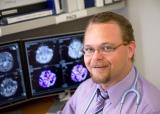
Biography:
As a pediatric oncologist, palliative care physician, member of the ethics committee and Phase I and end-of-life care clinical investigator at St. Jude Children’s Research Hospital, I am intimately aware of the distress experienced by children with advanced cancer and the ethical and end-of-life/bereavement issues surrounding their disease progression. I currently serve as the Chief of the Division of Quality of Life and Palliative Care at St. Jude as well as the medical director of our Quality of Life Service – the St. Jude palliative care team. I also serve as the Director of our Pediatric Hematology/Oncology fellowship program – the largest fellowship program in the state of TN. My research interests include ethical considerations surrounding enrollment in Phase I clinical trials, AYA palliative oncology care, end-of-life decision making, integrating palliative care into the ongoing care of children with cancer as well as pain and symptom control in the context of pediatric oncology care. I have participated in >25 studies related to pediatric palliative care and have authored numerous manuscripts and book chapters on the topics ethical decision making as well as other palliative care subjects within the context of pediatric oncology.
Abstract:
Over the past 100 years medical decision-making in the United States shifted from a paternalistic physician-driven process to a patient-driven autonomy-based standard. Over the past 10-years the pendulum shifted to a balanced meet-in-the-middle approach commonly defined as shared decision-making. Families who listen to all the medical options and select the recommended (standard) option are often perceived to be equal partners. Families that refuse medical recommendations or demand medically inappropriate interventions exist outside of the norm, challenge the communication and shared decision-making skills of clinicians, and may reveal our biases. In this interactive workshop participants will learn the principles of ethical reasoning used when evaluating possible medical neglect or demands for futile or medically inappropriate care. The workshop will provide participants with strategies for communicating with families perceived to be “unreasonable” or at the fringe as well as provide suggestions for reducing the moral distress inherent in these ethically challenging cases. Objectives: 1. Differentiate when parental refusal of a recommended therapy does and does not constitute medical neglect. 2. Recognize when familial requests are demands for futile or medically inappropriate care. 3. Negotiate a treatment plan for families at either extreme using the principles of ethical-reasoning and shared decision-making.
Lesline P Lewinson
Staffordshire University, UK
Title: Student nurses appreciate experiential learning for spiritual care in hospice and palliative care settings
Time : 16:30 - 16:55
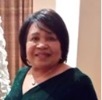
Biography:
Lesline P Lewinson has a special interest in spirituality in healthcare. She is a qualified nurse, midwife, health visitor and nurse lecturer. Accordingly, she has acquired a wide-range of nursing experience in both acute and community settings. During the late 1990’s through a Department of Health funded research project, she was influential in improving primary healthcare access for residents on the Broadwater Farm Estate in London, England. However, for a number of years she was involved in nurse education as a senior lecturer in adult nursing, at the University of Hertfordshire. Presently, she is completing PhD studies at Staffordshire University, looking into the spiritual dimension of holistic nursing care.
Abstract:
Spirituality is subjective, broad, multifaceted, and defies consensus in terms of definition. However, there is recognition that the spirituality influences a patient’s physical and mental health, also their wellbeing and quality of life. Accordingly, spiritual care is considered a part of the nurse’s role and is an integral part of holistic nursing care. However, the nursing profession favours the medical model of health that concentrates on the physical and psycho-social aspects of health care, and for the most part neglects the spiritual. Nevertheless, pre-registration nurse education has a responsibility to adequately prepare student nurses for all aspect of their role, but research shows that matters of spirituality are poorly represented in nurse education and training. While debates continue as to whether spirituality education is more ‘caught than taught’, nurses desire to be better equipped to deliver spiritual care. Therefore, some preliminary findings from a grounded theory investigation provides useful information to show that, student nurses will draw on various resources to enable them to fulfil the spiritual part of their role. In addition, clinical experience in hospice and palliative care environments, seem to provide most useful learning opportunities for students’ understanding and facilitation of spiritual needs.
Semra Aciksozrn
Gulhane Military Medical Academy, Turkey
Title: Palliative care for dying patients: Perceptions of nursing students
Time : 16:55 - 17:20

Biography:
Semra Aciksozrn has completed her master’s degree in 2007 from Gulhane Military Medical Academy, Institute of Health Sciences Fundamentals of Nursing Program. She has completed her PhD from Gulhane Military Medical Academy, School of Nursing in 2012 and Postdoctoral studies from Gulhane Military Medical Academy, School of Nursing. She is working in Gulhane Military Medical Academy School of Nursing as a lecturer. She has published 5 papers in national and international journals and she has authored and coauthored more than 45 abstracts.
Abstract:
Background: Understanding nursing students’ perceptions of dying and palliative care can help educators prepare students for these situations by using the research available to plan better ways to teach students about the needs of the dying patients. Aim: The aim of this study was toidentify the perceptions of nursing students about palliative care for dying patients while on clinical placements. Methods: A qualitative research design was used to obtain data from nursing students who had cared for dying patients during their clinical placements. A total of 15 senior nursing students participated in this study. This study used semi-structured interview guides and unstructured face-to-face dialogue with the participants based on a qualitative method. The data were analyzed based on the phenomenological approach of qualitative methodology. Results: Four categories were identified from the content analysis: feeling of stress and inadequacy; inability to use effective communication skills; symptom management; providing emotional support to family. Most of students in the study reported that caring for a dying patient was a stressful experience, which experienced stress and anxiety related to death, and was not feel competent. Students reported emotional distress and feelings of inadequacy with regard to communicating with patients and supporting the family of the dying patient. Nursing students’ perceptions of palliative care focused on symptom management. Conclusion: These experiences highlight a need for strategies to support nursing students about competence, communication skills and coping with emotional stress. Student nurses need to be prepared to take an active role in caring for dying patients.



